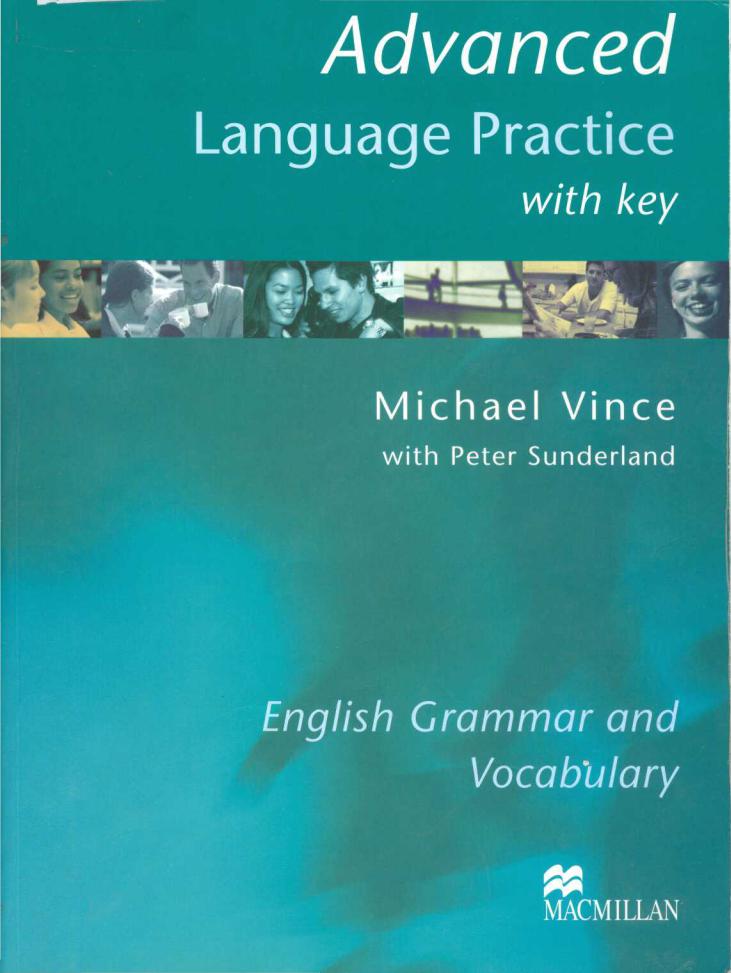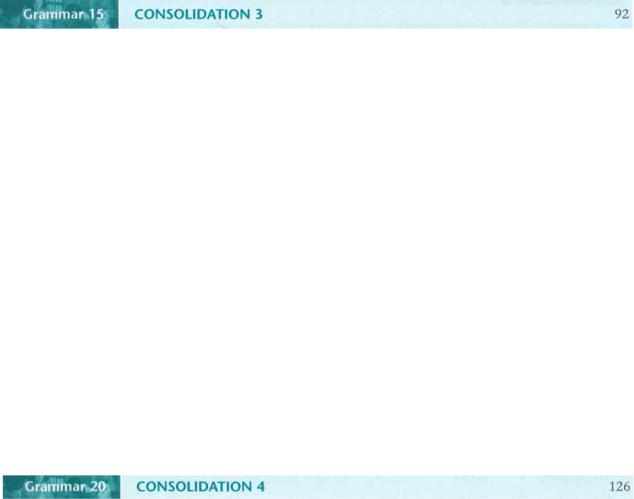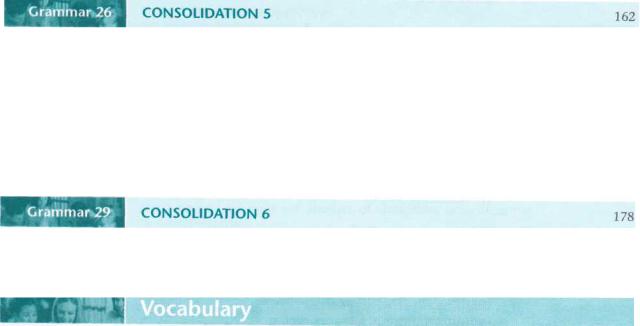
3_Macmillan_-_Advanced_Language_Practise
.pdf

Advanced
Language Practice
with key
Michael Vince
with Peter Sunderland
English Grammar and
Vocabulary
MACMILLAN
Macmillan Education
Between Towns Road, Oxford OX4 3PP
A division of Macmillan Publishers Limited Companies and representatives throughout the world
ISBN 1 405 00762 1 with key
ISBN 1 405 00761 3 without key
Text © Michael Vince 2003
Design and illustration © Macmillan Publishers Limited 2003
First published 1994
This edition published 2003
All rights reserved; no part of this publication may be reproduced, stored in a retrieval system, transmitted in any form, or by any means, electronic, mechanical, photocopying, recording, or otherwise, without the prior written permission of the publishers.
Designed by Mike Brain Graphic Design Limited
Layout and composition by Newton Harris Design Partnership Cover design by Oliver Design
Illustrated by:
Ed McLachlan pp 109; Julian Mosedale pp 12, 39, 110, 123, 153, 176, 195, 217, 225, 257; David Parkins pp 3, 42, 73;
Martin Shovel pp 10, 16, 56, 70, 117, 147, 235, 285;
Bill Stott pp 122; Kingsley Wiggin pp 24, 27, 57, 191, 220.
Photographs by:
Eyewire, Photodisc and Andrew Oliver.
The author would like to thank the many schools and teachers who have commented on these materials. Also special thanks to Peter Sunderland and Sarah Curtis.
Printed and bound in Italy
by G. Canale and C. S.p. A Borgaro T.se, Turin
2007 |
2006 |
2005 |
2004 |
|
2003 |
|||
1 0 9 |
8 |
7 |
6 |
5 |
4 |
3 |
2 |
1 |

Contents
Introduction
Grammar 1 |
Present time |
|
Basic contrasts: present simple and present continuous |
|
State verbs and event (action or dynamic) verbs |
|
State verbs normally without a continuous form |
|
Difference of meaning in stative and active verbs |
|
Other uses of present continuous |
|
Other uses of present simple |
Grammar 2 |
Future time |
|
Basic contrasts: will, going to, present continuous |
|
Future continuous |
|
Future perfect |
|
Other ways of referring to the future |
|
Other future references |
Vlll
Grammar 3 |
Past time |
14 |
Basic contrasts: past simple and past continuous
Past perfect simple and continuous
Used to and would
Unfulfilled past events
Polite forms
Contrast with present perfect
Grammar 4 |
Present perfect |
21 |
Present perfect simple
Present perfect continuous
Contrast of present perfect simple and present perfect continuous
Time expressions with present perfect
Grammar 6 |
Passive 1 |
33 |
|
Basicuses |
|
|
Using and not mentioning the agent |
|
Grammar 7 |
Passive 2 |
40 |
|
Have and get something done, |
need doir, |
|
Passiveget |
|
|
Reportingverbs |
|
|
Verbs with prepositions |
|
Common contexts for the passive
iii

A D V A N C ED LANGUAG E PRACTIC E
Grammar 8 |
Conditionals |
46 |
|
Basic usage: truths, real situations, hypothetical situations (present |
|
|
and past) |
|
|
Variations: if only, unless, and other alternatives to if, past events |
|
|
with results in the present, should, were to, happen to, |
if it were not for, |
|
if it hadn't been for |
|
|
Other ways of making a conditional sentence: supposing, otherwise, |
|
|
but for, if so, if not, colloquial omission of if, if and adjectives, |
|
|
if meaning although |
|
Grammar 9 |
Unreal time and subjunctives |
54 |
|
It's time, it's high time |
|
|
Wishes |
|
|
I'd rather and I'd sooner, I'd prefer |
|
As if, as though
Suppose and imagine
Formalsubjunctives
Formulaic subjunctive
Grammar 11 |
Modals: present and future |
65 |
|
Don't have to and must not: absence of obligation, obligation not |
|
|
to do something |
|
|
Should: expectation, recommendation, criticism of an action, |
|
|
uncertainty with verbs of thinking, with be and adjectives describing chance |
|
|
after in case to emphasise unlikelihood |
|
|
Could: possibility or uncertainty, with comparative adjectives to |
|
|
express possibility or impossibility, suggestions, unwillingness |
|
|
Can: criticism, capability |
|
|
Must and can't: certainty, present time reference only |
|
|
May and might: although clauses, may/might as well, possibility or |
|
|
uncertainty with try |
|
|
Shall: certainty, what the speaker wants to happen |
|
|
Will: assumption, intention, refuse and insist |
|
|
Would: annoying habits, certainty |
|
|
Need: need to not a modal, need partly a modal |
|
|
Related non-modal expressions: had better, be bound to |
|
Grammar 12 Modals: past 72
Had to and must have: past obligation, past certainty
Should have and ought to have: expectation, criticism of an action, should have and verbs of thinking, with be and adjectives describing chance, polite expressions
Could have: past possibility or uncertainty, with comparative adjectives,unwillingness
Could: past permission or ability, compared with could have May have and can't have: certainty, with surely
Would not: unwillingness
Would have: events in the past which did not happen, assumptions Needn't have and didn't need to: unnecessary actions done and not done Adverbs and modals: well, easily, obviously, really, just
IV

CONTENTS
Grammar 13 |
Inversion |
78 |
Inversion
Inversion after negative adverbials
Inversion after so/such with that
Inverted conditional sentences without if
Grammar 14 |
Emphasis |
85 |
Changing word order to change focus
Adding words for emphasis
Other means
Grammar 16 |
Reported speech |
97 |
|
Problems: reported speech with modals, with conditionals, don't think |
|
|
Reporting verbs |
|
|
Functions: verbs that describe a function, verbs that describe actions |
|
|
Changes of viewpoint |
|
Grammar 17 |
Articles |
10 |
|
Definite article (the), indefinite article (a/an), zero article |
|
|
Translation problems |
|
Grammar 18 |
Relative and non-finite clauses |
111 |
|
Defining and non-defining clauses |
|
|
Which and that |
|
|
Who, whom, and whose |
|
|
When and where |
|
|
Omitting the relative pronoun |
|
|
Omitting which/who + be |
|
|
Clauses beginning with what and whatever |
|
|
Non-finite clauses containing an -ing form |
|
Grammar 19 |
Verbs + infinitive or -ing |
118 |
|
Verbs followed by either -ing or infinitive with to |
|
Verbs with an object, followed by either -ing or infinitive with to
Verbs normally followed by infinitive with to
Verbs normally followed by -ing
Verbs followed by infinitive without to
Verbs followed by an object and to
Grammar 21 |
Verbs + prepositions |
131 |
|
Verbs followed by: in, for, of, with, from, on, against, about, out, at, to |
|
Grammar 22 |
Prepositions |
138 |
Following adjectives: of, about, with, at, on, to, by, for, in, from Following nouns: on, to, over, with, for
Expressions beginning: in, with, at, on, beyond, by, for, out of, under, without, within, after

ADVANCED LANGUAGE PRACTICE
Grammar 23
Grammar 24
Grammar 25
Grammar 27
Grammar 28
Grammar 30
Vocabulary ~T
Vocabulary 2
Vocabulary 3
Vocabulary 4
Vocabulary 5
Vocabulary 6
Vocabulary 7
Vocabulary 8
Vocabulary 9
Vocabulary 10
Vocabulary 11
Vocabulary 12
Vocabulary 13
Phrasal verbs 1
Add up to get up to
Phrasal verbs 2
Give away to put up with
Phrasal verbs 3
Rip off to work out
Linking words and phrases
Text organisers: adding a point, developing a point, contrast, explaining reasons, making generalisations, giving new information
Punctuation and spelling
Common errors Problem words
Words with similar spelling but different meanings Punctuation: commas, apostrophes, colons and semi-colons
Further Practice
Leisure activities
Travel and movement
News events
Places
Media and advertising
The natural world
Work
Business and money
People and relationships
Social problems
Entertainment
Government and society
Health and the body
144
150
156
167
172
182
188
192
196
200
204
208
211
215
219
223
227
231
235
VI

C O N T E N T S
Vocabulary 14 |
World issues |
239 |
Vocabulary 15 |
Thinking and feeling |
243 |
Vocabulary 16 |
Technology |
247 |
Vocabulary 17 |
Quality and quantity |
250 |
Vocabulary 18 |
Education |
254 |
Vocabulary 19 |
Word formation |
258 |
Vocabulary 20 |
Multiple meaning |
262 |
1 |
Expressions with come, expressions with in, idioms based on hand, |
|
|
wood and metal, prefix un-, verbs of movement |
265 |
2 |
Expressions with get, colour idioms, expressions with |
|
|
see, suffix -ful, common expressions, expressions with out |
268 |
3Expressions with on, expressions with one, expressions with break, sounds, words with more than one meaning, words connected with
|
memory |
271 |
4 |
Formality, expressions with no, expressions with head, words |
|
|
connected with people, expressions with make, compound words |
274 |
5 |
Size, suffixes, headline language, expressions with once, body |
|
|
movements, expressions with at |
277 |
6 |
Expressions with set, places, words with more than one meaning, |
|
|
speaking, expressions with within, adjective suffix -ing |
280 |
7Expressions with by, idioms with parts of the body, adjective-noun collocations, expressions with have, verbs of seeing, expressions
|
with do |
283 |
8 |
Collocations of nouns linked with of, size, expressions with bring, |
|
|
feelings, prefix well, expressions with from |
286 |
9 |
Adverbs, expressions with think, expressions with give, modifiers, |
|
|
words with more than one meaning, but |
289 |
10 |
Expressions with put, expressions with run, prefix under-, names, |
|
|
expressions with call, verbs with up |
292 |
|
Index |
295 |
|
Grammar answers |
297 |
|
Vocabulary answers |
313 |
|
Words and phrases answers |
322 |
vii

The revised edition of this book is designed with a greater emphasis on text and collocation, in keeping with recent trends in the world of English as a Foreign Language. It also incorporates the many changes to the revised proficiency examination from December 2002, such as word formation and multiple word meaning. The book is also intended for use at the level of CAE, and includes new exercises practising the formal/informal register transfer task.
Most of the practice sections in the Grammar and Vocabulary sections reflect such changes, and where texts are retained from the first edition, they have been given more of an exam focus.
However, the core of this highly successful book remains the same. The grammar section now includes some additional revision and more subtle advanced points. Units on phrasal verbs, prepositions and linking devices are also included. The grammatical information provided can be used for reference when needed, or worked through systematically.
The vocabulary section includes topic-based vocabulary, collocations and idiomatic phrases. It also recycles work on prepositions, and phrasal verbs.
The book can be used as a self-study reference grammar and practice book or as supplementary material in classes preparing for the CAE and Proficiency exams. If used for classwork, activities can be done individually or co-operatively in pairs or small groups.
There are regular consolidation units which include forms of testing commonly used in both exams and the material covers a range of difficulty appropriate to both exams.
vm

Basic contrasts: present simple and present continuous
State verbs and event (action or dynamic) verbs
Explanations
Present simple generally refers to: Facts that are always true
Water boils at 100 degrees Celsius.
Habits
British people drink a lot of tea.
States
/ don't like gangster films.
Present continuous (progressive) generally refers to actions which are in progress at the moment. These can be temporary:
I'm staying in a hotel until I find a fiat.
They can be actually in progress:
The dog is sleeping on our bed!
Or they can be generally in progress but not actually happening at the moment:
I'm learning to drive.
State verbs describe a continuing state, so do not usually have a continuous form. Typical examples are:
believe, belong, consist, contain, doubt, fit, have, know, like, love, matter, mean, need, own, prefer, seem, suppose, suspect, understand, want, wish
Some verbs have a stative meaning and a different active meaning. Typical examples are:
be, depend, feel, have, measure, see, taste, think, weigh
Compare these uses: |
|
State |
Event |
Jack is noisy. |
Jill's being noisy. |
Deirdre has a Porsche. |
We're having an interesting conversation! |
I think I like you! |
David's thinking about getting a new job. |
This fish tastes awful! |
I'm just tasting the soup. |
I feel that you are wrong. |
I'm feeling terrible. |
This bag weighs a ton! |
We're weighing the baby. |
It depends what you mean. |
Bill, I'm depending on you to win this |
|
contract for us. |
The differences here apply to all verb forms, not just to present verb forms.
